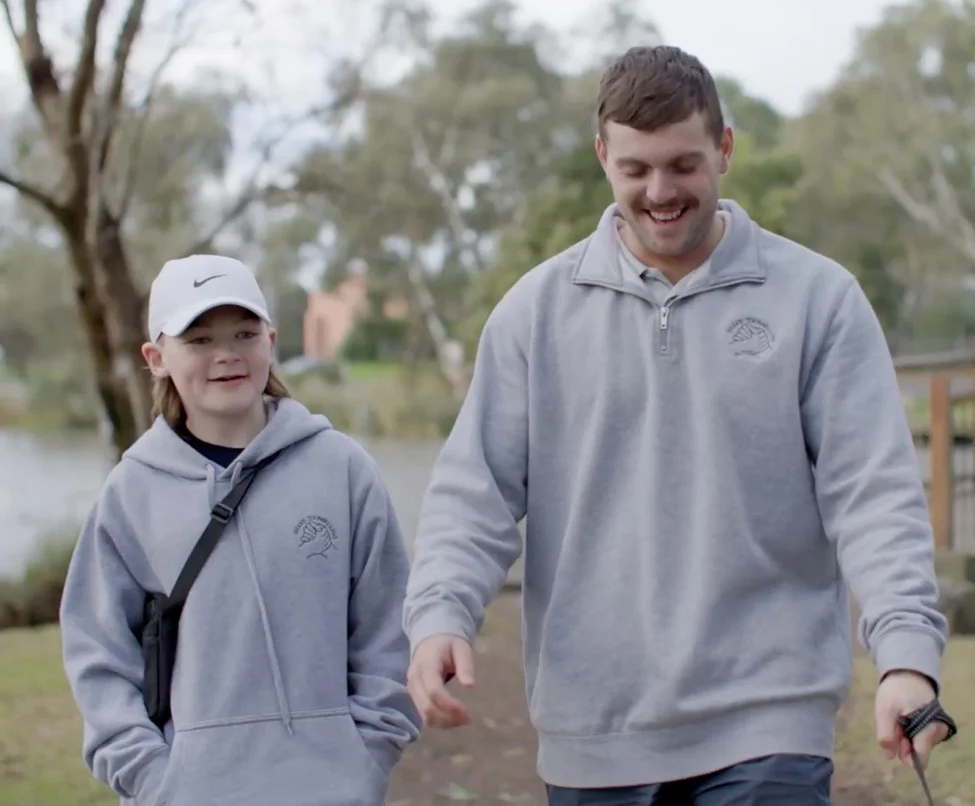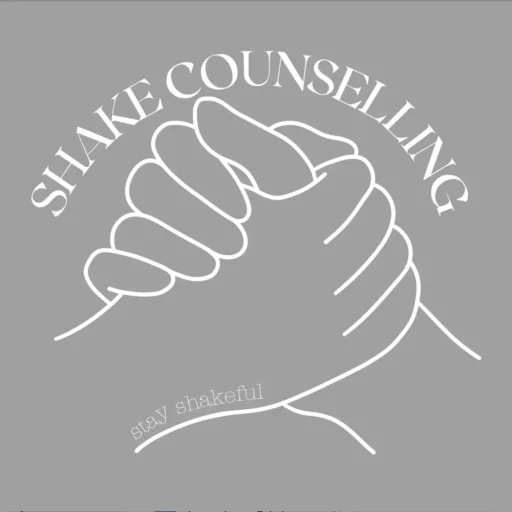Dialectical Behaviour Therapy
Equipping Teens with Resilience and Emotional Control
At Shake Counselling, we specialise in providing Dialectical Behaviour Therapy (DBT) tailored specifically for adolescents in Geelong, helping them build emotional resilience and develop effective coping strategies.
What is Dialectical Behaviour Therapy?
DBT is an evidence-based treatment approach that combines cognitive-behavioural techniques with mindfulness and acceptance strategies. Originally developed to treat borderline personality disorder, DBT has been proven effective in addressing a wide range of emotional and behavioural challenges.
The primary goal of DBT is to help individuals build a life worth living by developing skills in four key areas: mindfulness, distress tolerance, emotion regulation, and interpersonal effectiveness.
DBT has been shown to be effective for addressing:
- Anxiety disorders
- Depression
- Self-harm behaviours
- Suicidal ideation
- Substance abuse
- Eating disorders
- Anger management issues
- Relationship difficulties
At Shake Counselling, we've adapted DBT specifically for teenagers, creating an approach that's engaging, relevant, and effective for adolescents facing emotional and behavioural challenges.
Book a Free ConsultationThe Four Core Skills of DBT
These four core skill areas work together to help teens develop psychological resilience, emotional control, and better relationships.
How Shake Counselling Incorporates DBT for Teens
At Shake Counselling, we understand that traditional therapy settings can often feel intimidating or unengaging for teens. That's why we've adapted DBT to fit the unique needs and interests of adolescents, creating an approach that helps teens feel more comfortable and motivated.
Individual Therapy Sessions
Our counsellors work one-on-one with teens to address their specific challenges, set personalised goals, and develop a tailored treatment plan. During these sessions, teens learn and practice DBT skills, process emotions, and receive support and guidance from their therapist.
Upcoming Skills Training For Groups
In addition to individual therapy, we will soon be offering skills training groups where teens can learn and practice DBT skills alongside peers facing similar challenges. These groups provide a supportive, collaborative environment that fosters connection, encourages skill-building, and helps teens feel less alone in their struggles.
Body Based Learning
To make DBT more engaging and accessible for teens, we incorporate creative, interactive activities into our sessions. From art projects and role-playing exercises to outdoor adventures and physical challenges, we help teens practice DBT skills in a hands-on, memorable way that resonates with their unique learning styles and interests.
Family Involvement
We believe that family support plays a crucial role in a teen's success with DBT. That's why we offer resources, guidance, and opportunities for family sessions to help parents and caregivers understand DBT principles, support their teen's progress, and foster a validating, emotionally supportive home environment.
The Benefits of DBT for Teens
By participating in our DBT program, teens can experience numerous benefits that help them navigate the challenges of adolescence and develop important skills for a healthy, fulfilling life.
Improved emotional regulation skills and ability to manage intense feelings
Increased distress tolerance and better crisis management strategies
Enhanced interpersonal effectiveness and communication skills
Greater self-awareness and mindfulness in daily life
Reduced impulsivity and risk-taking behaviours
Stronger, more positive relationships with family and peers
Increased resilience and ability to cope with stress
Greater sense of empowerment and control over their lives
Start Your Journey with DBT at Shake Counselling
If a teen in your life is struggling with intense emotions, impulsive behaviours, or interpersonal challenges, DBT at Shake Counselling may be the key to helping them build the skills and resilience they need to thrive.
Our compassionate, experienced team is here to support your teen every step of the way, providing the personalised, engaging care they need to navigate the challenges of adolescence and emerge stronger, more confident, and better equipped to handle life's ups and downs.
Book Your Free ConsultationFrequently Asked Questions
The length of DBT treatment varies depending on each teen's unique needs and progress. However, most teens participate in our program for several months to a year to fully develop and integrate DBT skills into their daily lives.
We typically structure the program in phases:
- Initial assessment and goal-setting: 2-3 sessions
- Core skills development: 12-24 weekly sessions
- Integration and practice: 8-12 sessions (often spaced every other week)
- Maintenance and follow-up: As needed
Throughout the process, we continually assess progress and adjust the treatment plan based on each teen's individual needs and response to therapy.
Our DBT services may be covered through various funding options:
- NDIS: If your teen has an NDIS plan with appropriate funding categories, our services can be covered under the NDIS. We are a registered NDIS provider and can work with self-managed or plan-managed NDIS participants.
- Medicare: With a Mental Health Treatment Plan from a GP, clients can access a rebate for a limited number of sessions per calendar year.
- Private Health Insurance: Some private health insurance extras policies may provide coverage for psychology or counselling services. We recommend checking with your specific provider about their coverage options.
During your initial consultation, we can discuss these options in more detail and help you determine the most appropriate funding pathway for your situation.
Yes, DBT was originally developed specifically to help individuals who struggle with self-harm behaviours and suicidal thoughts. It has a strong evidence base for reducing these behaviours and helping teens develop healthier coping mechanisms.
DBT addresses these concerns through several key strategies:
- Teaching specific crisis survival skills to use during intense emotional distress
- Developing emotion regulation skills to reduce the intensity of painful emotions that often trigger self-harm
- Building distress tolerance skills to manage difficult situations without resorting to harmful behaviours
- Creating safety plans and identifying alternative coping strategies
- Addressing the underlying issues that contribute to self-harm and suicidal thoughts
For teens experiencing these serious concerns, we provide comprehensive support while working closely with other healthcare providers to ensure appropriate care and safety.
While DBT incorporates elements of CBT, it differs in several important ways:
- Emphasis on Dialectics: DBT balances change with acceptance, helping teens understand that seemingly contradictory perspectives can both be true. This "both/and" rather than "either/or" thinking is central to DBT.
- Mindfulness Focus: DBT places a much stronger emphasis on mindfulness skills derived from Eastern practices, teaching teens to be present in the moment without judgment.
- Validation: DBT strongly emphasizes validation of emotions and experiences, whereas traditional CBT focuses more on changing thoughts and behaviours.
- Skills Training: DBT includes a comprehensive skills training component with four specific modules (mindfulness, distress tolerance, emotion regulation, and interpersonal effectiveness).
- Relationship Focus: DBT places greater emphasis on the therapeutic relationship and interpersonal effectiveness skills.
While CBT focuses primarily on identifying and changing negative thought patterns, DBT combines change strategies with acceptance and mindfulness techniques, making it particularly effective for emotional dysregulation issues.
Yes, we strongly encourage and support parent/caregiver involvement in the DBT process. Family support is a crucial factor in a teen's success with DBT. We offer several ways for parents and caregivers to participate:
- Parent Education Sessions: Learn about DBT principles, skills, and how to support your teen's practice of these skills at home.
- Family Therapy Sessions: Joint sessions with the teen and family members to improve communication, practice skills together, and address family dynamics.
- Parent Coaching: Guidance on how to respond effectively to challenging behaviours and emotions, create a validating environment, and reinforce DBT skills.
- Regular Updates: With the teen's consent, we provide regular updates on treatment progress and areas where family support would be beneficial.
- Resources and Materials: We provide handouts, worksheets, and other resources to help parents understand and support the DBT process.
Research shows that family involvement significantly improves outcomes in teen DBT, so we work to create a collaborative approach that respects the teen's autonomy while incorporating valuable family support.

Contact Us Today
Ready to learn more about how our DBT program can help your teen build emotional resilience and develop effective coping strategies? Get in touch with us today to schedule a free 20-minute consultation.
During this call, we'll discuss your teen's specific challenges and needs, explain our DBT approach in more detail, and answer any questions you may have about our services.
